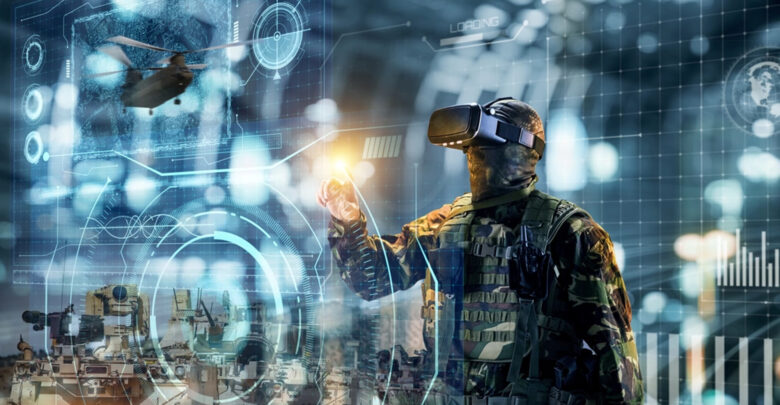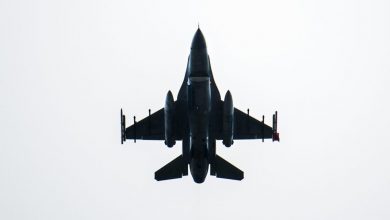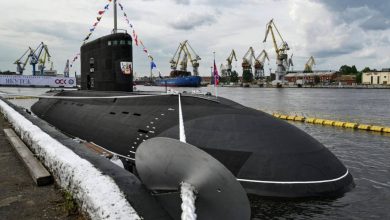Innovating Our Destruction: The Technologizing of Warfare

We live in an unprecedented era of innovation and technological progress, with healthcare, entertainment, communication, and many other aspects of our daily lives better than ever.
Yet technological advancements do not come without risks, and good intentions can have deadly consequences.
When the Wright Brothers invented the airplane, they recognized it could have military applications. They inaccurately believed planes would be a deterrent to war. One key argument, much like the modern nuclear deterrence doctrine, was that the capability of bombing behind frontlines would deter leaders from war.
Hindsight shows that this threat was nowhere near strong enough to prevent war or outlaw the use of aircraft in it.
Artificial Intelligence in Warfare
Artificial intelligence (AI) is one technology that promises great advancements for humanity while simultaneously threatening it.
AI has been accepted into the military plans of great powers like the US, China, and Russia. These nations are pursuing a joint system that connects military personnel and equipment in one network. In practice, such a system could use AI to have a drone identify an enemy target and then communicate to a navy ship to launch a missile at those coordinates.
The technology could do all of this without human interaction. In the most extreme case, this would mean no human approval is needed to fire that navy missile. Efforts are also being made to include nuclear capabilities in such networks.
An AI-controlled joint system opens the door to the possibility of friendly fire and targeting of civilians in the case of a programming error or the system being hacked by adversaries or terrorists.
Artificial intelligence will be an immeasurable asset to militaries, but there remains the risk of something going horribly wrong. Anyone who has watched The Terminator is sure to be cautious of AI’s role in warfare.
Space as Battleground
Space has been off-limits for weaponization since the Cold War. The US and USSR (continued with Russia) recognized the gravity of waging war in space and largely cooperated.
However, space is once again viewed as a frontier to be claimed and conquered, vital to a nation’s national security and of great military importance.
Naturally, this triggers countries to develop technology to protect themselves from any potential space invasion or attack, as demonstrated by Russia’s anti-missile system destroying a satellite in space in 2021.
Prior to this event, NATO recognized the destruction of their satellites as a potential for invoking Article 5, which increases the risk of an accidental war.
The growing interest in space brings the adventure of space exploration alongside military concerns for offensive and defensive capabilities. As we expand outside Earth, the risks and consequences of messing around in our atmosphere and beyond grow.
Nuclear Deterrence
Technological developments regarding nuclear deterrence also pose a grave issue, but missile defense systems rather than nuclear weapons increase this risk.
The existence of nuclear weapons from the Cold War onwards significantly contributed to an unprecedented era of peace — at least for direct high-intensity great power conflict.
Humanity has used nuclear deterrence for this peace at the cost of our peace of mind knowing the devastating consequences of nuclear weapons. Their destructive potential allowed the Cold War strategy of Mutually Assured Destruction (MAD) to prevent world leaders from engaging in war with other nuclear powers.
MAD gave nuclear powers the confidence that in the event of war, neither side could defend themselves from nuclear arms. The US and USSR purposely left themselves vulnerable to attack.
Should there exist missile defense systems capable of giving leaders security from nuclear weapons, then we are doomed to World War III.
Recent developments in US missile defense suggest attempts to make nuclear deterrence obsolete. Worst of all, it is only the perception of security that matters. The missile system may not guarantee complete security, but if the collective leadership believes they are secure enough to contain the devastation of nuclear weapons, then their false sense of confidence can lead to overly ambitious wars.
The belief that airplanes could deter war because nations could bomb others was flawed since the destruction could be contained. Aircraft could be shot down, and the casualties inflicted by their bombs would not destroy an entire nation.
In contrast, nuclear weapons without any ability to defend one’s nation from them eliminate the possibility of containing the destruction and make war unwinnable. Having the technology to contain at least some of the devastation nuclear weapons could inflict would remove the deterrence they have provided for decades.
Military structures and doctrines emphasizing small professional forces reliant on advanced technology increase the risk of conflict. Large armies of the Cold War coupled with nuclear weapons made fast-action operations like Russia’s annexation of Crimea in 2014 impossible. Small professional armies unable to protect everything create opportunities for adversaries’ trained forces with advanced technology to exploit.
Caution
Advancements in artificial intelligence, space, and missile defense can bring humanity forward into a new technological age of space exploration, planetary defense from meteorites, and other untold wonders.
Nonetheless, we must remain cautious and recognize the risks involved. These three prominent areas can lead to innovating our own destruction. After all, Albert Einstein is often quoted as saying, “I know not with what weapons World War III will be fought, but World War IV will be fought with sticks and stones.”
Technology can leap humanity’s progress forward, or it can completely reset it.





